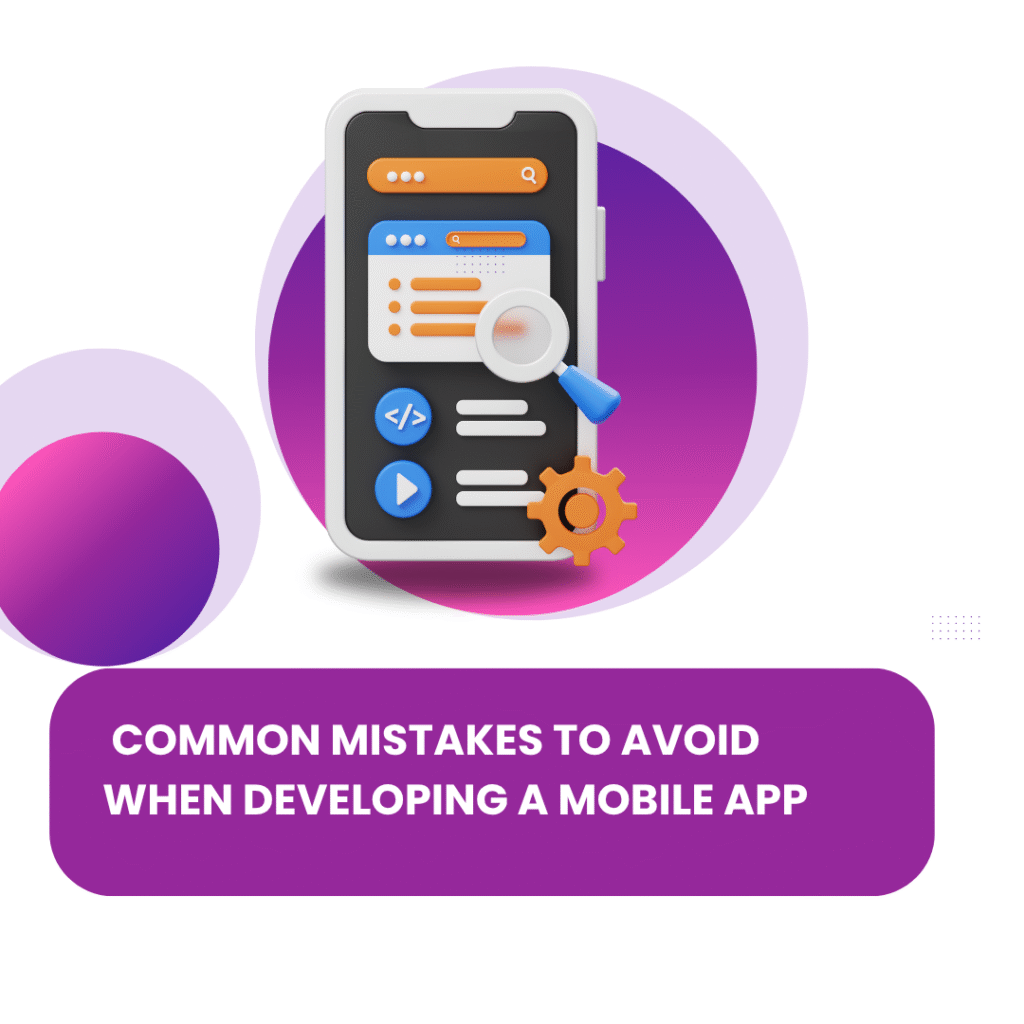In today’s fast-paced digital world, mobile apps have become a vital tool for businesses to connect, engage, and grow their audience. From e-commerce and healthcare to education and entertainment — every industry is leveraging mobile technology to enhance user experiences.
However, many app development projects fail or underperform due to avoidable mistakes. Whether you’re a startup or an established brand, knowing these pitfalls can save time, money, and effort.
Here’s a detailed look at the common mistakes to avoid when developing a mobile app — and how to ensure your app’s success.
⚙️ 1. Skipping Market Research
One of the biggest mistakes businesses make is jumping straight into development without proper market research.
Without understanding your target audience, competitors, and market demand, your app might fail to meet user expectations.
Avoid it by:
Conducting thorough user and competitor research.
Identifying pain points and gaps your app can solve.
Validating your idea with surveys or MVP testing.
2. Ignoring a Clear Purpose or Goal
Every successful app is built around a clear objective — whether it’s to simplify shopping, improve communication, or manage finances. Many businesses fail because they try to include too many features without defining a focused purpose.
Avoid it by:
Defining your app’s core goal before design or development.
Prioritizing essential features for your MVP.
Expanding features gradually based on user feedback.
3. Overloading the App with Features
Adding every possible feature might seem like a great idea, but it can make the app slow, confusing, and expensive to maintain.
A cluttered app often leads to poor user experience and low retention rates.
Avoid it by:
Focusing on simplicity and usability.
Adding only value-driven features.
Keeping navigation intuitive and minimal.
4. Poor UI/UX Design
A well-developed app can still fail if the user interface (UI) and user experience (UX) are not intuitive.
Users today expect sleek designs, easy navigation, and quick response times.
Avoid it by:
Hiring experienced UI/UX designers.
Following modern design principles and platform guidelines.
Testing the app with real users before launch.
5. Neglecting Platform Differences (iOS vs Android)
Each platform — iOS and Android — has unique design standards, user behavior, and technical requirements.
Building a one-size-fits-all app without considering these can lead to performance or compatibility issues.
Avoid it by:
Customizing the app experience for each platform.
Using cross-platform tools (like Flutter or React Native) smartly.
Testing separately on both platforms.
6. Weak Security Practices
With increasing cyber threats, app security should never be an afterthought. Storing user data without proper encryption or ignoring authentication layers can put your users — and brand reputation — at risk.
Avoid it by:
Implementing end-to-end encryption and secure APIs.
Regularly updating the app to patch vulnerabilities.
Following GDPR and other data protection guidelines.
7. Underestimating App Testing
Many developers rush to launch without comprehensive testing, leading to bugs, crashes, or performance issues post-launch.
Even minor glitches can drive users away.
Avoid it by:
Testing across multiple devices and operating systems.
Performing usability, performance, and security testing.
Conducting a pilot launch before going live.
💡 8. Ignoring User Feedback
Your users are your best source of improvement. Ignoring their reviews or feedback can cause your app to stagnate while competitors evolve.
Avoid it by:
Actively monitoring reviews and app analytics.
Updating the app regularly based on user feedback.
Building long-term relationships with users through engagement.
9. No Post-Launch Strategy
App development doesn’t end at launch — it’s just the beginning. Many businesses fail because they don’t plan for marketing, updates, and maintenance after release.
Avoid it by:
Setting a clear app marketing and update plan.
Monitoring KPIs (downloads, retention rate, engagement).
Providing continuous support and improvements.
Conclusion
Building a successful mobile app isn’t just about coding — it’s about planning, research, design, testing, and ongoing optimization.
Avoiding these common mistakes can save you from costly errors and help you create an app that delivers true value to your users.
Whether you’re developing your first app or upgrading an existing one, partnering with a professional app development team ensures the right strategy, technology, and execution from start to finish.



